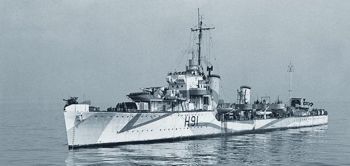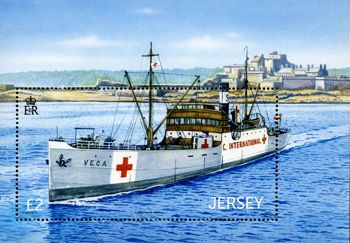The Channel Islands at war — Liberation & dark legacies of the Holocaust

The liberation of the Channel Islands began with the arrival of H.M.S. Bulldog in St Peter Port, Guernsey on May 9, 1945. German forces surrendered unconditionally aboard the vessel at dawn, and British forces landed shortly afterwards, greeted by crowds of joyous but malnourished islanders.1
Liberation came none too soon to the Channel Islands. Conditions had been reasonable for the most part during the occupation, as long, of course, as one didn’t consider the loss of civil rights and virtual imprisonment as unreasonable!

Shortages of food, medicine and medical supplies became evident soon after the occupation, When shortages became serious, civic leaders on Guernsey negotiated with the Germans to allow food imports from France. But with the Allied invasion of Europe on June 6, 1944, German supply lines for food and other supplies through France were completely severed, and civilians and occupation troops alike faced malnutrition and even a possibility of starvation. The German “solution” was to confiscate the harvest of 1944, which had been a good year from an agricultural standpoint, leaving civilians and even German occupation troops to attempt to survive on a subsistence diet only, although milk continued to be available in sufficient quantities.
Blampied remained in Jersey after the war, mostly working in oils and watercolours, except for a series of 12 silhouettes he published in 1950 and a few etchings in 1958, one of which he exhibited at the Royal Academy. He designed a postage stamp to celebrate the liberation of Jersey in 1947, and the first Jersey regional stamp issued in 1964.

Suggested reading:
• The Channel Islands at war: Deportation & imprisonment — British residents living in the Channel Islands, along with some Jews and islanders charged with crimes against the Third Reich, were sent to German internment and concentration camps. Some died there.
• The Channel Islands at War — Col. Rybot’s poetic protest: “An Occupation Alphabet,” a poem written in 1944 by the designer of Jersey’s first occupation stamps, protests the German presence in the Channel Islands as well as the unpatriotic behaviour of some of his fellow islanders.
• The Channel Islands at war: the Red Cross Message Scheme — How islanders were able to communicate with friends living abroad, courtesy of the International Committee of the Red Cross.
-
Long before the liberation of the Channel Islands, H.M.S. Bulldog had already taken its place in history with the capture of a complete Enigma machine and codebooks from the German submarine U-110 in 1941, and sinking U-719, in June 1944. ↩︎